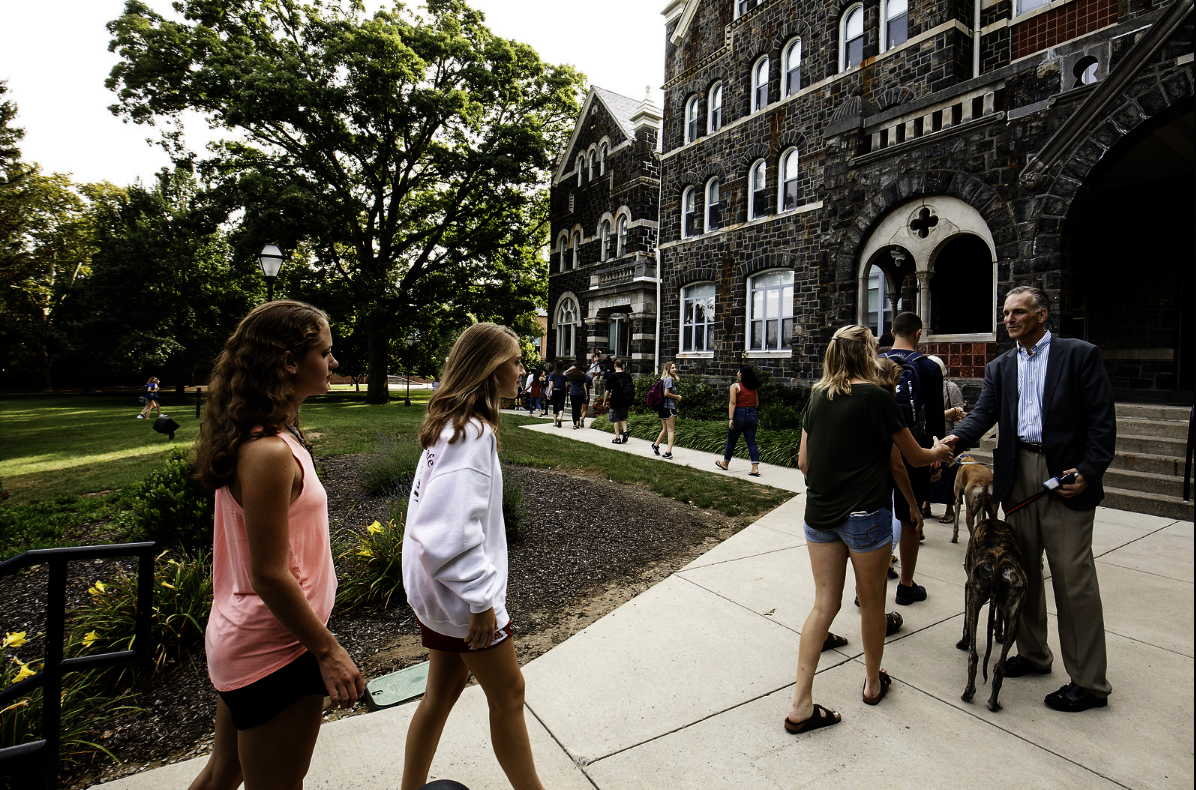Support for College Students with Bipolar Disorder
About 5.7 million Americans age 18 and older experience Bipolar Disorder and the feeling of being pulled extreme highs (mania) and lows (depression), according to NIMH. These extreme shifts in mood can happen rapidly or they can persist for a length of time. A person has to exhibit at least one episode of mania or hypomania in order to be diagnosed with bipolar illness. While the depressive periods in Bipolar disorder are similar to depressive disorder, the symptoms of elevated mood may be mild and feel more manageable (hypomania), alternating between depression and mania (mixed episodes) or classical severe mania (Bipolar I).
Signs and Symptoms of Bipolar Disorder
MANIA
- Excessively "high," euphoric mood
- Extreme irritability
- Unrealistic beliefs in one's abilities and powers, such as feeling able to control world events
- Decreased need for sleep without feeling tired
- Racing thoughts or fast speech
- Distractibility or difficulty concentrating
- Agitation
- Spending sprees
- Increased energy, activity and restlessness
- Poor judgment
- Lasting period of behavior that is different than usual
- Increased sexual drive
- Abuse of drugs, particularly cocaine, alcohol and sleeping medications
- Provocative, intrusive or aggressive behavior
- Denial that anything is wrong
DEPRESSION
- Persistently sad, anxious, irritable or empty mood
- Loss of interest in previously enjoyable activities, including sex
- Withdrawal from friends and family
- Trouble sleeping or sleeping too much
- Feeling tired or run down
If You Are in Crisis: Call the toll-free National Suicide Prevention Lifeline at 1-800-273-TALK (8255) or text START to the Crisis Text Line at 741-741, available 24 hours a day, 7 days a week. The service is available to anyone. All communications are confidential.
If you are on Moravian's campus and need help:
- call the Counseling Center at 610-861-1510
- Discuss the impact of your disorder with the Director of Accessibility Services (610-861-1401 or aasc@moravian.edu). You may be eligible for accommodations in your classroom, housing, or for programs and events at Moravian.
- call Campus Police at 610-861-1583.
- speak with the campus Chaplain at 610-861-1421
Getting help on campus
If you’re experiencing many of these signs and symptoms and it’s impairing your ability to function as a college student, we suggest you:
- Talk to friends and family about it.
- Go to the college counseling office, see a psychiatrist, seek out support groups on campus (i.e., Active Minds).
- Try integrating these non-clinical holistic skills that can help:
- Exercise
- Yoga
- Meditation
- Mindfulness
- Better Nutrition
Source: https://collegereentry.org/bipolar-disorder

